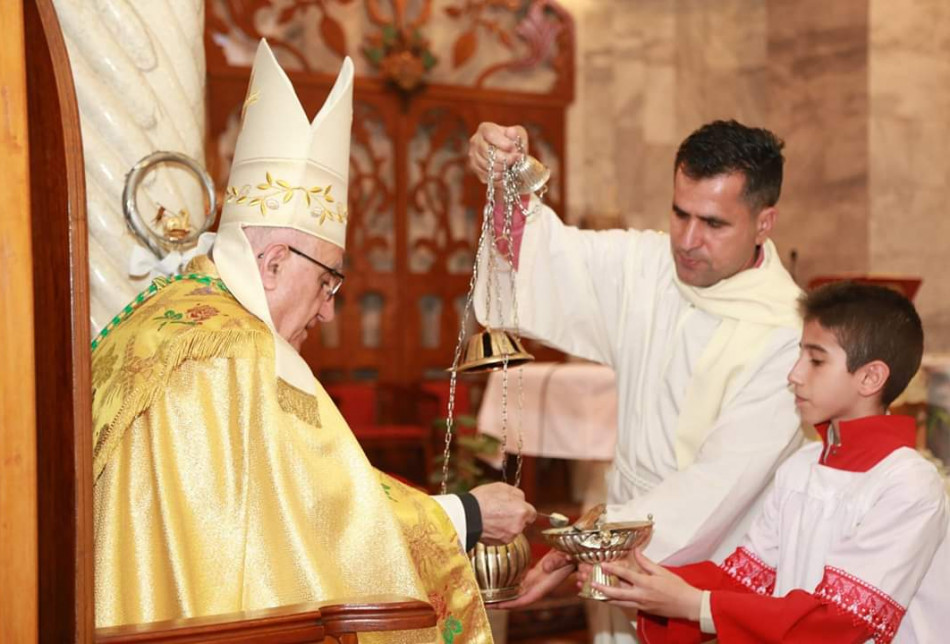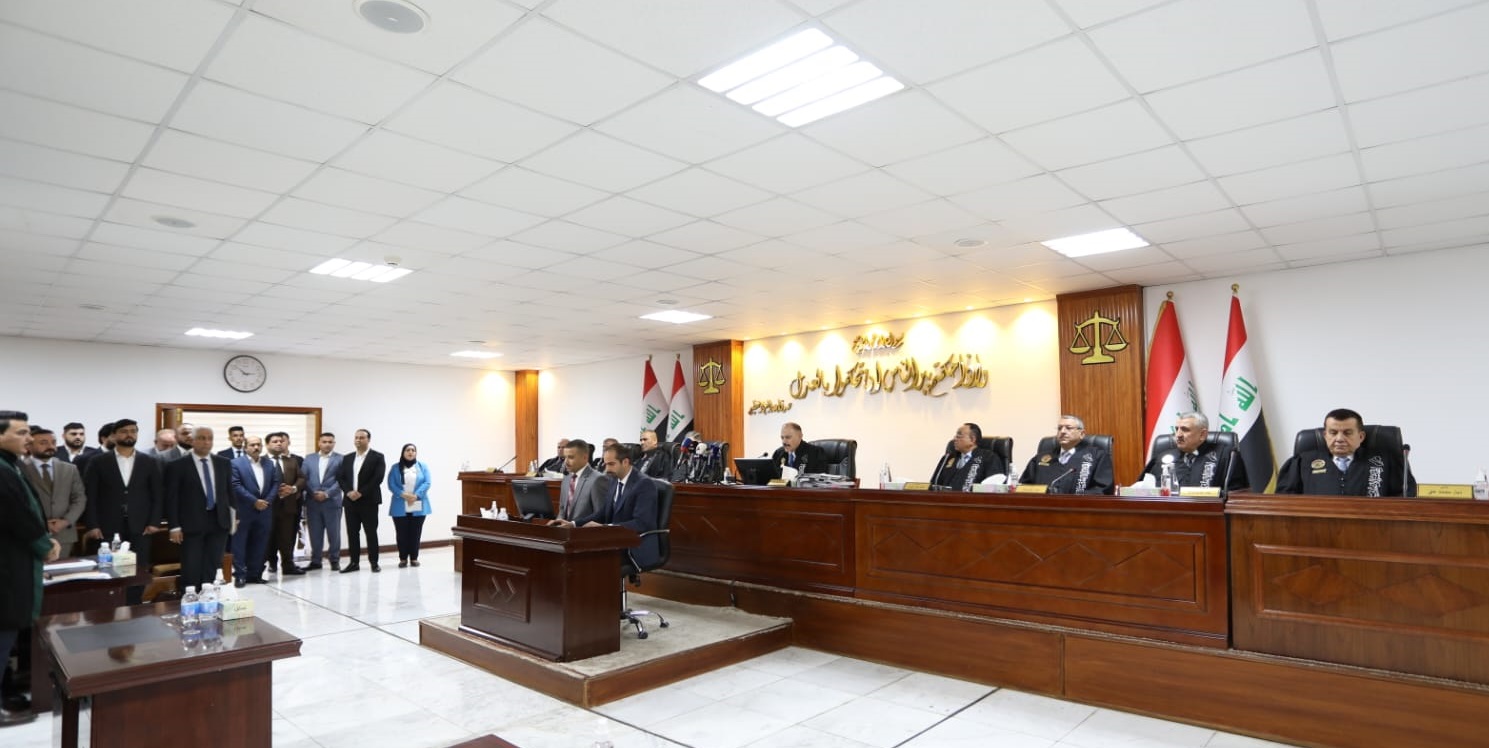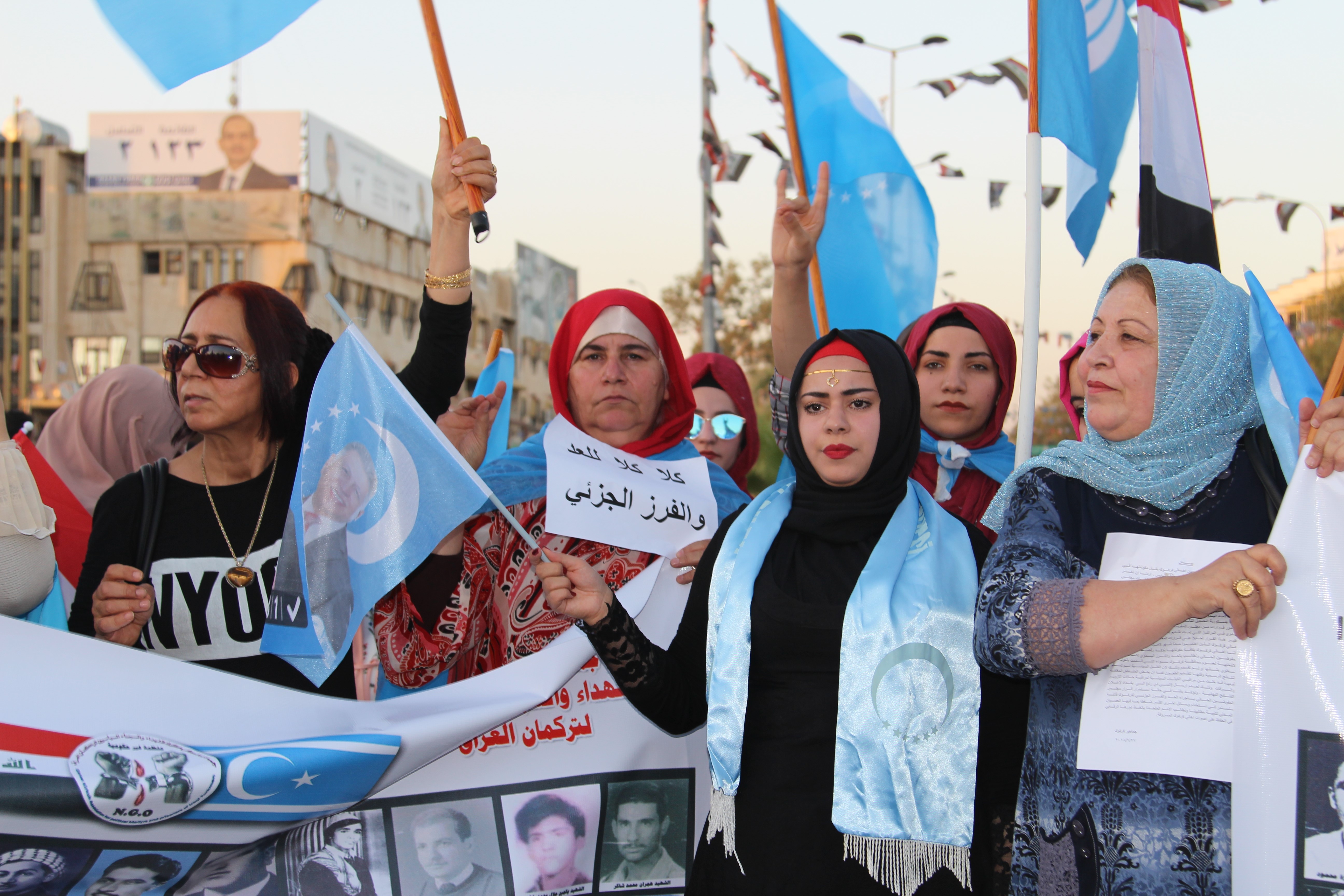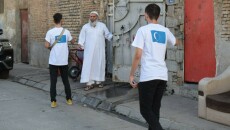The Iraqi Kurdistan Region's IKR religious and ethnic minorities have decided not to give up, to participate in the Kurdistan parliamentary elections and reach parliament outside the quota system aborted by Iraq’s top court, though the mission is not easy
This is the new position of the minorities in the IKR after the Federal Court of Iraq annulled 11 minority seats in the Iraqi Kurdistan parliament within the framework of the quota system for being illegal, (Five seats for each of Turkmen and Christians and one for Armenians).
On Wednesday, February 21, 2024, the Federal Court of Iraq issued a series of decisions on the 1992 Kurdistan parliamentary elections law, including reducing the number of parliamentary seats from 111 to 100 seats and making the Kurdistan Region multi-constituency.
Yousef Mohammed, former speaker of the Kurdistan Regional Government (KRG) parliament, who attended the court session in Baghdad told KirkukNow that the court's decision is “clear and means that there is no longer anything called the quota seat - to participate in the parliamentary seats and determine their representation.”
There is no such thing as the quota seat anymore
The cancelation of the quota seat has caused concern among all religious and ethnic minorities in the region who last night, February 21, in a joint press conference, described the court's decision as a "coup against the constitution.”
"There is no political or constitutional justification for this," said Mohammad Ilikhani, who read out the joint statement of the Iraqi Kurdistan Region's IKR minorities.
The minorities stressed at the press conference that the decision is "political ... because the rights of communities are enshrined in Articles 49 and 125 of the permanent Iraqi constitution.”
Article 49, paragraph 1 of the Iraqi constitution, which minorities rely on to respond to the Federal Court's decision, states: "The House of Representatives shall consist of a number of members, each for 100,000 Iraqis, elected by direct secret ballot.”
Article 125 of the constitution states, "This constitution guarantees the protection of the administrative, cultural, political, etc. rights of different ethnicities such as Turkmen, Chaldeans, Assyrians, and other communities.
According to Article 36 of the Kurdistan Regional Parliament Elections Law, five quota seats were allocated to the Turkmen, five seats to the Chaldean Syriac Assyrian component, and one seat to the Armenians.
Turkmens, the third largest ethnic group in Iraq after Arabs and Kurds, are spread across the country, residing almost exclusively in the northern towns and villages stretching from Tal Afar through Mosul, Erbil, Altun center of Kirkuk and Altun Kopri district, Tuz Khurmatu of Salahaddin and Kifri and Khanaqin in DIyala. They are all Muslims, half Sunnis and half Shiites.
Though there are no official records about the Turkmens in Kirkuk, The Turkmen political parties say there are over 200,000 Turkmen voters in Kirkuk which has been divided into three constituencies for 12 seats in October 10th, 2021 General Elections.
Turkmen political parties have gathered only 100,000 votes in May 2018 public elections in Kirkuk , making three seats yet dropped to only two seat in 2021 General Elections.

Easter ceremony at a church of Kirkuk, 2019. KirkukNow
Minorities believe the Patriotic Union of Kurdistan (PUK), the second largest force in the Kurdistan Region, made a "historic mistake" in the latest parliamentary elections by filing a complaint in the Federal Court against minority seats.
"This is a retreat from the national partnership, coexistence, and human rights enshrined in the political agreements after the 1991 uprising," the statement said.
“The decision is in the interest of a political party that suffered from internal problems in the last parliamentary elections.” Without clear reference to any political party.
According to the law on protection of the rights of communities in Kurdistan, which was passed by the Kurdistan parliament in 2015, the government takes into account the situation of communities when determining the boundaries of administrative units and electoral constituencies.
The religious and ethnic communities called on the Kurdistan Democratic Party (KDP) and its leader, Massoud Barzani, to reject the decision.
According to the law, there are at least 10 ethnic and religious communities, including Turkmen, Chaldeans, Assyrians and Armenians, Yazidis, Christians, Sabi'a Mandaians, Kakais, Shabaks, Failis, Zoroastrians and others.
Despite all these concerns, the minorities stressed that "we will not give up our political work to serve all communities in Kurdistan and convey our voice to the international community.”
We will not give up our political work to serve all communities in Kurdistan
"The court decided to introduce a new law to hold the Kurdistan parliamentary elections, not even going back to the 1992 Kurdistan parliamentary elections law," said Muna Qahwachi, secretary of the fifth session of the Kurdistan parliament.
The decision came after two members of the PUK faction in the fifth session of the Kurdistan Parliament, filed the complaint because "the law is old and needs to be amended.”
The first session of the Federal Court regarding the complaint submitted by the PUK was held last June 11, and the fourth session was on October 15.
The court was scheduled to hold its final session last November to make a final decision on the case.
The components in the IKR are often accused of supporting the agenda of the KDP. The Barzani family fill in the senior postions of the Iraqi Kurdistan region presidecny and council of ministers.

A hearing of the Federal Supreme Court of Iraq. Website of the Federal Supreme Court
Ziad Jabar, head of the PUK faction in the fifth session of the Kurdistan Regional Parliament and a complainant, told KirkukNow earlier, “This issue has been discussed several times in the past four years, all to hold clean elections in Kurdistan. The Kurdish people should have real representation, but it was not amended.”
"Everyone knows that the current law was passed in 1992 and five different laws have been passed in five elections in Iraq, so the law needed to be amended but we could not make a deal and resorted to the federal court to solve the problem.”
"The electoral law itself was unfair. In fact, there is no electoral system in the world that is 100 percent fair," Yousef Mohammed said.
He added that the total number of decisions of the Federal Court has reduced some of the priviliges of the Kurdistan Parliament.
According to the court's decision, the Kurdistan Region must have at least four constituencies and 100 seats in parliament.
"The Iraqi Independent High Election Commission (IHEC) is likely to divide the Kurdistan Region into four constituencies, with 38 seats in Sulaimani, 35 in Erbil, 24 in Duhok and three in Halabja," Aram Jamal, director of the Kurdish Institute for Elections, told KirkukNow.
According to the statistics of the Iraqi Ministry of Planning for 2021 and based on the population, Sulaymaniyah province, including Halabja, is home for over 2,336,000 people, according to which between 40 to 41 seats, Erbil has more than 2.3 million people meaning between 34 and 35 seats.
Duhok province has a population of more than 1.39 million and will get 24 seats.
"Because there is no law to divide the constituencies and seats, the Independent High Election Commission in consultation with the Kurdistan Regional Government will determine the date of the election, as well as the constituencies and the number of seats," Jamal said.
"After the elections, it is the duty of parliament to determine the number of seats and constituencies by law," he said.
“The Federal Court put no value for the Kurdistan Region due to the PUK's complaint... Our question is whether the problems in the Kurdistan Region were the fault of the communities?” Azad Kurachi, head of the Turkmen faction, told KirkukNow.
“Let those who filed the complaint look at themselves.”
“When the limit was set for the (minority) communities, it was because they did not get many votes to reach parliament and government, so we have to think about replacing them in other ways which is a bit difficult because the components are not powerful to convince people to vote for them so we don't know how and what will happen.”






